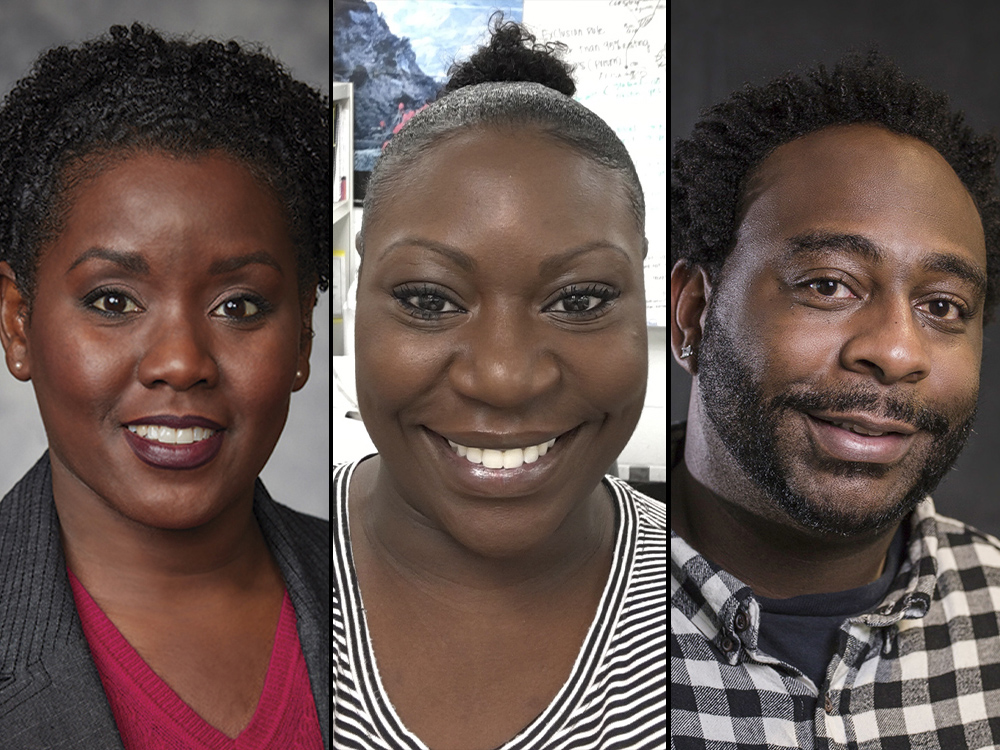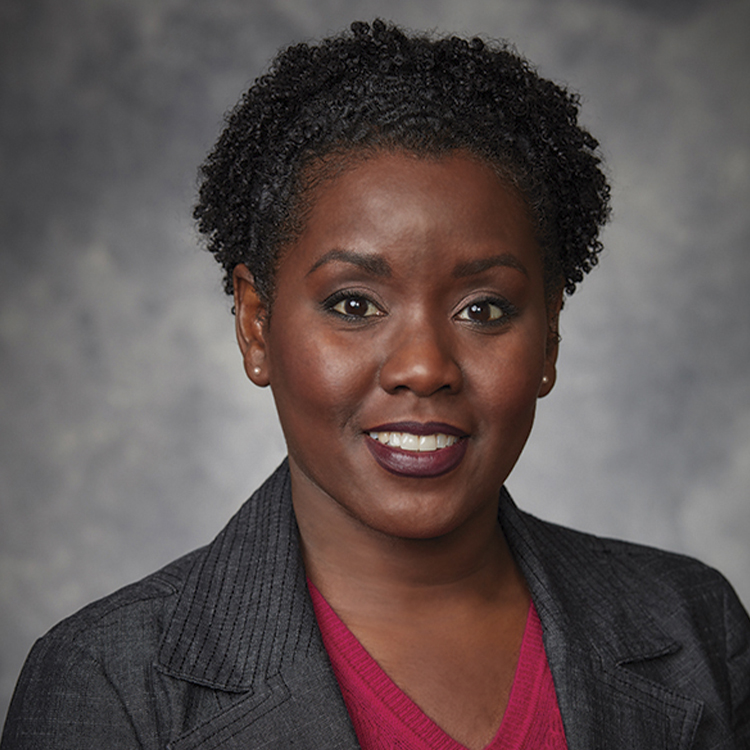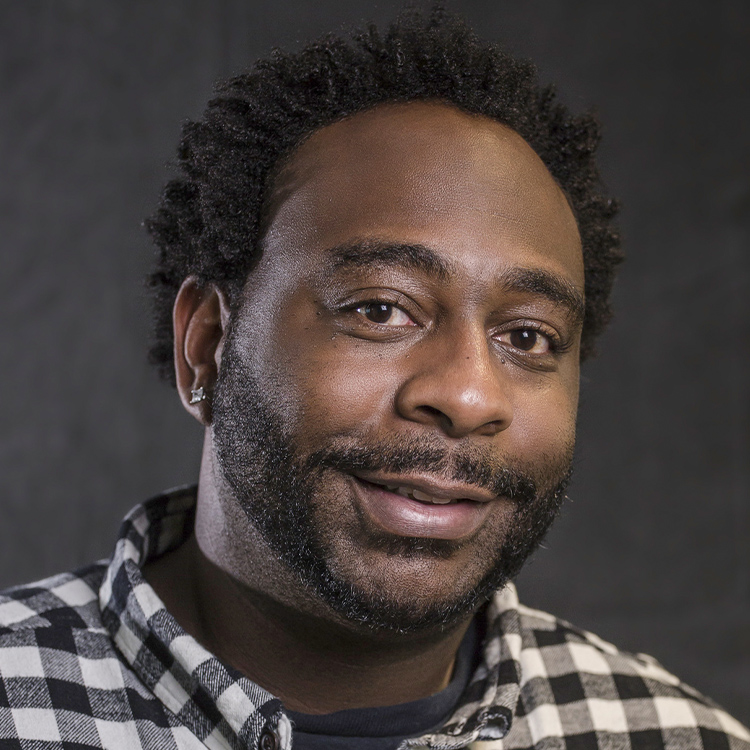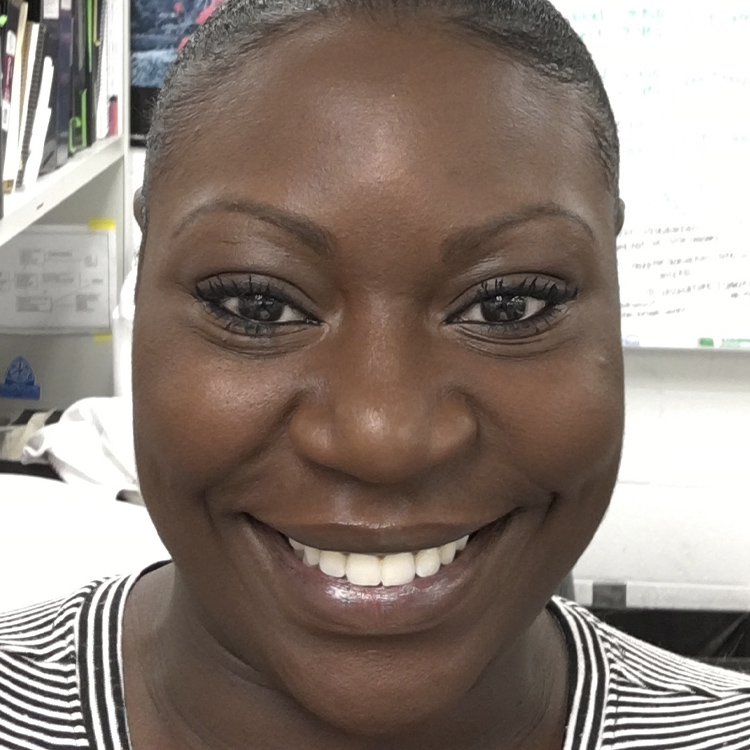UTD Trio Named Among 1,000 Inspiring Black Scientists
02.01.2021
 From left: Dr. Nikki Delk, Dr. Bianca Mason and Dr. Michael Burton
From left: Dr. Nikki Delk, Dr. Bianca Mason and Dr. Michael Burton
Three University of Texas at Dallas researchers were named to the list of 1,000 Inspiring Black Scientists in America published by Cell Press in December.
Associate professor Dr. Nikki Delk in the School of Natural Sciences and Mathematics, and assistant professor Dr. Michael Burton and postdoctoral scientist Dr. Bianca Mason, both in the School of Behavioral and Brain Sciences, were cited in a catalog intended to “dismantle the myth that outstanding Black scientists make up a small percentage of the scientific community.”
Delk, who joined the Department of Biological Sciences in 2014, is a Fellow, Cecil H. and Ida Green Professor in Systems Biology Science. Her research focuses on inflammation-induced breast cancer and prostate cancer progression and treatment resistance. She earned her bachelor’s degree from Georgetown University and her doctorate from Rice University. She also achieved the rank of captain while serving for four years in the U.S. Air Force.
“When people find out that I am a scientist, they are often in awe,” she said. “Black people, and especially Black women, are underrepresented in STEM [science, technology, engineering and mathematics]. I think one reason why Black women are underrepresented in STEM is because of society’s perception of a scientist. I once surveyed family and friends from different age, race, gender and professional groups on what comes to mind when I say ‘scientist’ and most replied ‘Albert Einstein.’
“Until we expand our definition of a scientist, young Black girls may not consider it as a career choice. The first step is to increase diversity in the field so that young people from all backgrounds have examples to look to.”
 Dr. Nikki Delk
Dr. Nikki Delk
Delk believes that changing that perception for current and future generations will help close the gap, along with programs that help open doors for those in demographics that are underrepresented in research fields.
“I have had the advantage of being at institutions that respect racial and cultural differences and support inclusion initiatives in STEM,” she said. “In addition, during my graduate and postdoctoral training, I benefited from programs that promote diversity in STEM, such as the National Science Foundation AGEP [Alliances for Graduate Education and the Professoriate] program and the National Cancer Institute Center to Reduce Cancer Health Disparities. These programs provide networking and professional development opportunities in a group setting of people with shared cultural and social experiences. I gained a STEM family that has served as a support system throughout my career.”
Delk said that scientists in positions like hers can be a positive influence.
“Now that I am a tenured faculty member at a research institution, I am in a position to make decisions that can have a positive impact on our next generation of scientists, including encouraging and facilitating more young folks from underrepresented groups to pursue a career in science,” she said.
 Dr. Michael Burton
Dr. Michael Burton
Burton received his bachelor’s and doctoral degrees from the University of Illinois at Urbana-Champaign. He arrived at UT Dallas as a postdoctoral researcher in 2015 and joined the faculty in 2017. His research concerns how the immune system and nervous system interact to influence pain signaling.
“My journey through academia has been one of discovery and care,” he said. “It was always clear that there are very few people that look like me in the lab and conference rooms. This filled me with trepidation that I would not be understood. However, diversity is at the root of advancement and cutting-edge research. Being a Black scientist now, able to influence future scientists of all races and sexes, is humbling.”
Mason received her doctorate in 2017 from the University of Iowa. Her research aims to understand better the mechanisms of migraine.
“As a Black female scientist, I can say that there will be obstacles in the path to success. Often, I am in a room full of those that do not look like me, and it can get lonely,” she said. “However, I try not to focus on that; I try to embrace what makes me similar to my peers, not what makes me different.
“I am hopeful that I will be in a position to make a difference. Mostly, I stand proudly as I think of the many young girls that will be inspired by me as a Black female scientist. It is my hope to help remove barriers for people that look like me; to help normalize equal representation of races and sexes in the basic sciences.”
 Dr. Bianca Mason
Dr. Bianca Mason
Mason received her bachelor’s degree from Savannah State University, one of the many historically black colleges and universities (HBCU) that provide crucial opportunities for the African American community.
“Like so many Black people, I began my journey at an HBCU. Many people do not realize how important these institutions are when it comes to nurturing, boosting self-confidence and empowering individuals like myself,” she said.
–Stephen Fontenot
Tags: Accolades, BBS, Dr. Bianca Mason, Dr. Michael Burton, Dr. Nikki Delk, NSM